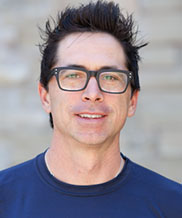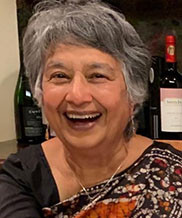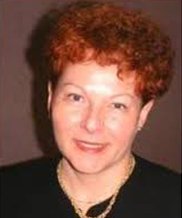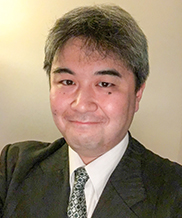Immersive Technologies for Collaboration
Global experience with virtual environments has skyrocketed in 2020. “Shelter-in-place” is our local term for working, learning and socializing remotely. Regardless of how it’s labeled, we have dramatically increased the proportion of communications and interactions that are NOT face-to-face. We’ve used virtual presence to share screens, to create meaning. We’ve learned new cues for taking turns in telepresence, and we’ve tamed the nests of cords and accessories that power and personalize our various devices.
In this first-of-kind, the Very Virtual Retreat we will use existing and emerging technologies to leverage experiences and insights from the mediaX membership community of scholars, researchers, instructors and learners. With thinking tools, demonstrations and working sessions, we’ll reflect on what we know and what we’d like to know about using immersive technologies to collaborate, discover and learn.
July 27, 5:00pm PACIFIC (Check-in Begins at 4:45pm)
IMMERSIVE TECHNOLOGIES FOR COLLABORATION (SESSION IS FULL)
Dennis Wall – Enhancing Emotional Reciprocity
Parvati Dev – Crossing the Chasm with Crisis Communication
Renate Fruchter – Hands-on (Virtual) Design and Engineering
Ryota Yamada – Role Choices for Robotic Teammates
Additional Very Virtual Retreat In-world Sessions.
July 28, 12:00pm PACIFIC (Check-in Begins at 11:45am)
IMMERSIVE TECHNOLOGIES FOR DISCOVERY (SESSION IS FULL)
Jeremy Bailenson – Perceptions of Embodiment During Immersion
Walter Greenleaf – Designing for Emotional Response
Kenji Suzuki – Imagining Alternatives with Immersive Engineering
Pearly Chen – Discovery through Content Creation and Curation
Ryan Burns – Educating the Sports Community About Concussions
July 30, 9:00am PACIFIC (Check-in Begins at 8:45am)
IMMERSIVE TECHNOLOGIES FOR LEARNING (SESSION IS FULL)
Bryan Brown – Contextual Learning for Teens
Anna Queiroz – Enhancing Attention and Engagement in VR
Haibo Zhang – Learning Through (Virtual) Experiences
Yuji Nakajima – Immersive Learning with XR Technology in Manufacturing Workforce
Hong-Dun Lin – Exercise Through Integrating On-line and Off-Line Environments
Tomás Nascimento – Using Immersive Environments for Transportation Training
Presenters

Dennis Wall is Associate Professor of Pediatrics, Psychiatry and Biomedical Data Sciences at Stanford Medical School. He leads a lab in Pediatric Innovation focused on developing methods in biomedical informatics to disentangle complex conditions that originate in childhood and perpetuate through the life course, including autism and related developmental delays. For over a decade, first on faculty at Harvard and now at Stanford University, and as healthcare has shifted increasingly to the use of digital technologies for data capture and finer resolutions of genomic scale, Dr. Wall has innovated, adapted and deployed bioinformatic strategies to enable precise and personalized interpretation of high resolution molecular and phenotypic data. Dr. Wall has pioneered the use of machine learning and artificial intelligence for fast, quantitative and mobile detection of neurodevelopmental disorders in children, as well as the use of use of machine learning systems on wearable devices, such as Google Glass, for real-time “exclinical" therapy.

Parvati Dev, PhD, is CEO of SimTabs LLC. She completed her doctorate at Stanford University and did post-doctoral research at M.I.T. It was a stint in industry that showed her that she could build products that changed how a physician or surgeon performed their task. She returned to Stanford University to start a learning technology group that placed Stanford’s medical students at the leading edge of the e-learning revolution, winning awards along the way for her team’s use of high performance networks and virtual reality. In 2008, she began developing products commercially to do the same for the medical professional. Today her “Health TeamSpaces” virtual hospitals provide spaces for nurses, doctors, pharmacists and therapists to practice together, learning in the safety of a simulation, correcting personal and team errors, and emerging with confidence in their ability to help real patients.

Renate Fruchter is the founding director of the Project Based Learning Laboratory (PBL Lab), lecturer in the Department of Civil and Environmental Engineering, and Senior Research Engineer thrust leader of “Collaboration Technologies” at the Center for Integrated Facilities Engineering (CIFE), at Stanford. She leads a research effort to develop collaboration technologies for multidisciplinary, geographically distributed teamwork, and e-Learning. Her interests focus on R&D and larger scale deployment of collaboration technologies that include Web-based team building, synchronous and asynchronous knowledge capture, sharing and re-use, project memory, corporate memory, and mobile solutions for global teamwork and e-Learning. In addition, she has established in 1998 a strong research effort focusing on the impact of technology on learning, team interaction, and assessment. She is the leader and developer of the innovative "Computer Integrated Architecture/Engineering/Construction Global Teamwork" course launched in 1993, at Stanford, that engages universities from US, Japan, and Europe.

Ryota Yamada is a Chief Specialist of Technology focused on Information and Communication Technology at the Open Innovation Group, Innovation Exploring Initiative H.Q., OMRON Corporation. He joined OMRON in 2002 as a Software Engineer. From 2003 to 2006, He was a Visiting Researcher at mediaX at Stanford University, where he worked with the Late Professor Cliff Nass on designing and implementing Socially Intelligent Agent technology, which improves human performance. After returning to Japan, he worked on the research and development of web communication systems for experts in factory and wireless sensor network systems. Now he is working on collaboration for open innovation.